
The seal of integrity (a feature article written by Industry Networker Magazine)
Geir Otto Amundsen on News · Jul 01, 2019
In a recent article published by Industry Networker Magazine, Pipeotech and theDeltaV-Seal™ are recognized for significant technological enhancements towards safety, efficiency, cost reduction, and unprecedented sealing strengths. In addition to these features, the article also discusses the significant impact that the DeltaV-Seal has on eliminating ATEX Zones.
The Seal of Integrity
The founders of Pipeotech set out in 2012 to put an end to the leaking of toxic, damaging and hazardous compounds as a result of inadequate sealing technology. Four years on from the launch of the Norwegian company’s game-changing flange gasket, Mr Henrik Sollie, CEO, tells us how the DeltaV-Seal™ solves one of the most challenging problems in piping, and reveals its numerous potential applications.
Composed mainly of micro-leaks that seep out from equipment such as valves, flanges and pumps, so-called fugitive emissions of volatile organic compounds (VOCs) are a growing concern across oil & gas infrastructure, petrochemical facilities, and a range of other industrial settings. Operating conditions such as pressure and temperature, together with ageing, deterioration of sealing devices and equipment solidity can lead to a substantial increase in fugitive emissions that have an impact on health, safety and the environment, as well as presenting a fire-safety risk and contributing to economic losses.
Indeed, worker safety is dependent on secure and predictable operations, while growing climate awareness and environmental regulation mean it has never been more important for businesses to protect both their operations and the world around them. It was this need for durability, reliability and minimised maintenance requirements in mission-critical infrastructure that drove Pipeotech’s founder, Tor Arne Hauge, to innovate a solution that would eliminate flange leakage while also being fireproof and blowout-safe for refineries.
The company began its development in 2012, based in the town of Tvedestrand on Norway’s southern coast, and by 2015 Pipeotech had pioneered the DeltaV-Seal™ Flange Gasket. “This revolutionary technology became – and remains – the world’s first type-approved gasket, certified by DNV GL, and the only 100-per-cent leakproof flange gasket,” states Mr Sollie. “It was developed to replace spiral wound and Kammprofile gaskets, and to help users achieve their objectives in terms of increasing safety, reducing costs and enhancing sustainability.”
Making leaks a thing of the past
Since launching DeltaV-Seal™, Pipeotech has taken a series of small steps in the right direction as part of its aim to bring the product’s transformative benefits to a range of different clients. Having recently established an office in Oslo, last September Pipeotech signed a partner in the US and the company is currently finalising a new partnership with a Brazilian firm.
Mr Sollie was appointed CEO of Pipeotech in 2018, when Tor Arne Hauge opted to devote his energies to running parent firm Otechos Technology Group, which has a number of technological achievements under its belt. One such innovation is the unique Quickflange pipe-to-flange connection, which requires no welding or use of heat, which has been very successful in the North Sea piping industry.
Having won the Norwegian NHO innovation prize for the revolutionary Quickflange, Tor Arne Hauge and his partners turned their attention to flange leakage – a well-known problem in all industries using pipes and flanges, as Mr Sollie tells us: “Seals and flanges are exposed to temperature fluctuations that force the metal to expand or contract. Current ductile seals are produced from different materials to the flanges, however, which renders them unable to match the precise contraction or expansion rate of the metal flange. This, in turn, reduces the sealing strength of the gasket and significantly increases the risk of leaks. Our game-changing solution to this problem is to always produce the gasket from the same material as the connecting flange, thereby ensuring that the seal and the flange expand and contract equally, and in unison, thus eliminating any threat of leakage.
“When we meet with new engineers it tends to be an advanced decision-making process because they are used to taking a lot of things into consideration in order to get leakage down to an acceptable minimum, but we simply need to know what is written on the flange in order to produce a gasket from the same material,” he explains. “With each new customer we gain, we adapt the design accordingly – it’s a continuously evolving product. And once correctly fitted, it will remain in place, and the pipeline will be protected from leaks. We have since developed some other innovative sealing solutions based on the gas-tight DeltaV-Seal technology, although the flange gasket still represents 90–95 per cent of our business today.”
Eliminating ATEX zones
Alongside increasing operating efficiencies and reducing overall costs, DeltaV-Seal’s effectiveness at completely eliminating emissions from flanges in a piping network also dramatically reduces the prospect of environmental contamination for the facility or system in which it has been implemented.
Indeed, the stable sealing strength of the DeltaV-Seal enables clients to build facilities and piping networks through sensitive environments – so-called ‘ATEX zones’ – without threat of explosion, leakage or contamination. In such environments, a certain level of potentially flammable substance (for example, a combustible gas, mist, vapour, or dust) mixed with oxygen is all that is required to ignite an explosion. However, in meeting the criteria for ‘Durably Technically Tight’ solutions, the DeltaV-Seal effectively eliminates the risk of such a leakage in those hazardous areas (known as ATEX zones 0, 1 and 2). Zone 0 / 20 relates to an area characterised by ‘constant danger’ – that is, with the ‘permanent presence of explosive gases or combustive dust’ – yet, even in this most potentially hazardous zone, the DeltaV-Seal performs exceptionally well.
In fact, tests conducted on Pipeotech’s pioneering flange gasket by DNV GL and AMTEC Advanced Measurement Messtechnischer Service GmbH demonstrate sealing strengths that far exceed oil & gas industry standards. This enables the DeltaV-Seal to be certified as Durably Technical Tight, thereby exceeding the industry requirement for sealing strengths by 10,000 times (in accordance with VDI2440 regulations). Such strengths have been proven to dramatically reduce fugitive emissions from the petroleum production industry. And in turn, such benefits elevate Pipeotech’s flange gasket beyond a mere consumable component, and into the realms of a game-changing tool and investment.
From oil & gas to shipbuilding
Pipeotech’s sealing innovation certainly has the potential to provide solutions for a multitude of industries and applications that would see the benefit of switching to a leak-free gasket, but the oil & gas sector is clearly the largest market. “It often presents one of the most challenging working environments, while dealing with fugitive emissions, extreme heat and cryogenic temperatures, and will continue to be one of our most important fields of application,” Mr Sollie asserts. “Indeed, oil & gas represents one of three main markets with inherent challenges that can be addressed via our technology, the other two sectors being chemical processing and power generation – all of which utilise metallic gaskets.
“Having said that, the range of applications for which we have already supplied our flange gaskets is very wide due to the number of small companies that are our customers. Technological issues tend to be more readily recognised by management in smaller enterprises,” he remarks, “and if they come across a new solution, it’s easier for them to adopt it promptly. As a result, we have penetrated numerous industries, albeit in small volumes.”
Pipeotech’s biggest customer to date has been Vard Group – a subsidiary of Fincantieri, and one of the world leaders in specialised shipbuilding for the offshore industry – which has used the DeltaV-Seal for the steam systems on many of its newbuilds. “Shipbuilding is an important sector for us because vessels carry all the same challenges as a small town, but a leak at sea would be far more severe,” Mr Sollie points out. “We are confident that we will be able to gain a stronger foothold in the industry by providing products for many pipelines beyond steam. This could also open up other industry doors for us because if we have a proven ability to solve critical problems on a ship, we can solve them elsewhere, too.”
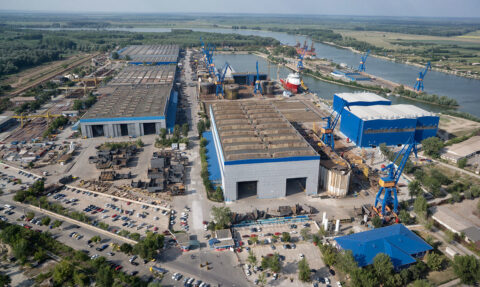
Going global
Geographically speaking, Pipeotech can provide its solutions to any market that is mature enough to value the benefits of investing in a leakproof connection. “We find that as the world becomes increasingly digital, more customers are seeking a solution to their problems rather than a specific product,” observes Mr Sollie. “Ultimately, I think we will be spread across many different markets, particularly as stringent new leakage regulations force even the most conservative players to utilise the best available technology, and certain countries are the forerunners in that respect.”
Clock Spring, for example – Pipeotech’s partner in the US – is an industry leader in pipeline repair solutions, with significant involvement in refineries and the chemical industry. “This partnership should provide us with a strong presence in the US market,” he notes, “while Clock Spring also has a presence and strong client base in the UK and the Middle East, among other locations, which gives us an idea of where our target markets may lie. We have just finished our commercial plans, and Clock Spring will have a go-to-market strategy ready for the autumn, when they anticipate an increase in turnaround contracts. Indeed, it is all very new and we are just starting to talk with potential customers.”
Moreover, with its new partner in Brazil – CT4.0 (Centro de Tecnologia 4.0) – Pipeotech is working on business cases for brownfield and greenfield projects both onshore and offshore, having recently travelled to Brazil for preliminary discussions with local oil & gas companies. CT4.0 is a small, technology-based company involved in the development of new products and processes for oil & gas exploration and production, particularly down-hole pumps. The company is previously known to Otechos and has access to numerous contacts within the large energy companies.
“In terms of investment in the market, these two partnerships represent our most important markets outside Scandinavia, which has been our most significant market until now,” Mr Sollie informs us. “Indeed, we are fortunate to come from a country and region with a major focus on health, safety and environmentally friendly solutions, and where there are many SMEs with hands-on, experienced management that can appreciate how a leak is bad for both business and safety. These companies tend to be in the LNG, food & beverage, shipbuilding, district heating, chemical and petrochemical industries – and when we first present them with our solution, they immediately understand the advantage of changing to DeltaV-Seal. This is where we started out, and having provided many of these customers with a pilot product so that they could see how the gasket works, they are now coming back to buy it on a larger scale.”
Mission-critical infrastructure
Pipeotech designs and develops its gaskets at the Tvedestrand facility, as part of a very close relationship with its customers and in line with their specific requirements, although much of the actual production is carried out by tried and trusted third parties.
“When it comes to installation of our products, we tend to only offer this service as part of a customer training initiative together with our sister company, Otechos Services,” he continues. “Installation of our gaskets is easier than others on the market – however, being a relatively new provider, we prefer to minimise the risk of human error during the installation process. In order to be able to offer installation on a wider level, we are exploring a possible joint venture or collaboration with an established provider of pipe repairs and installation of pipes and gaskets. In the future, we would also like to offer a guarantee of no leakage for the whole pipeline system, instead of just the gasket.”
While Pipeotech is still in its infancy and has not yet achieved many of its goals, the current shift from small Scandinavian customers to slightly larger, prestigious facilities in overseas markets certainly represents a promising step forward for the business. “The more challenging the business case, the more interesting it is for us,” Mr Sollie affirms, “such as our recent selection by a German insurance company for the rebuild of a refinery in Denmark that burned down a couple of years ago. As a task it has been defined by the engineers as needing to be ‘durably technically tight’ – a term used for equipment that essentially eliminates failure areas from a refinery. The insurance company found us online and selected us for the job based on our technology, which is a major leap in the right direction.
“In addition, we are currently supplying DeltaV-Seal gaskets to the Norwegian energy company Quantafuel, which produces high-quality synthetic fuels and chemical products based on non-recyclable plastic waste. Quantafuel is currently building a new sustainable fuel production plant in Skive, Denmark,” he reveals. “The company has been developing a solution that converts plastic waste into low-emission fuels and products for the petrochemical industry, via a manufacturing process whose emissions are as much as 90-per-cent lower than that of other diesels. As they told us, the only acceptable solution for such a facility would be a zero-emission gasket – namely the DeltaV-Seal. We are therefore proud to be a part of that concept, which is in consensus with what we are actually trying to achieve at Pipeotech.” The Skive facility will start producing diesel in the third quarter of 2019 and is set to be the first of several plants in Europe.
A new beginning for industrial piping
With fugitive atmospheric emissions of greenhouse gases from oil & gas operations now becoming subject to regulations, the ever-increasing global focus on climate change is a trend that will surely work in Pipeotech’s favour. “For us, entering the market as a new and relatively small player, any new legislation that comes in is very important because it gives meaning to leaks,” reflects Mr Sollie. “Of course, the product loss, reduction of safety and increased risk of unplanned shutdowns associated with a leak make it prudent to address the issue anyway, but what we are seeing now is that the debate around climate change is opening up conservative mindsets among the bigger players in the oil & gas industry. It is also an issue considered by potential investors and often – particularly in Norway – oil & gas companies have governmental owners.
“Essentially, fugitive emissions legislation provides us with another angle to approach a company and get to the table with its management,” he comments. “Until now, we’ve found it easier to talk to engineers, technicians and maintenance staff because they can examine the product and immediately appreciate how it will solve their leak problem. However, we need to start going in at a higher level in order to get our products specified for new facilities, which will be hugely important for us. Fugitive emissions from flanges today are not as high as those from vents or pumps, for instance, but they still represent a problem to be solved and we have the solution.”
Environmental considerations aside, Pipeotech is also benefiting from changes in the way companies seek out new solutions, as Mr Sollie describes: “I personally believe that trying to engage with all kinds of people and customers who are looking for a better solution is much easier today than it was 10 or even five years ago. Global digitalisation means more people are finding out about us online, while word travels fast and opens doors for us into new markets. Indeed, as long as we have a good product, we can rely to a certain extent on word of mouth. This is certainly a major advantage for a newcomer to the business.”
Indeed, being a new company means that every day brings new opportunities and challenges, but Pipeotech’s greatest apprehension is that DeltaV-Seal is copied in some way. “The technology is patented, of course, but there is a still a risk that it could be copied, so we intend to look into ways of protecting ourselves against this and providing traceability for our products,” Mr Sollie assures us. “The DeltaV-Seal is a game changer and would never have been developed without the visionary mind of the founder, Tor Arne Hauge, while the support we’ve received from Innovation Norway and strong strategic investors has been crucial to bring the technology to market. Going forward, the formation of close relationships will certainly be vital for our continued development,” he concludes.
Contact us for more information
contact usMore from News
Pipeotech launch new 304L stainless steel DeltaV-Seal for nitric acid service
James Knights on News · Jun 21, 2023
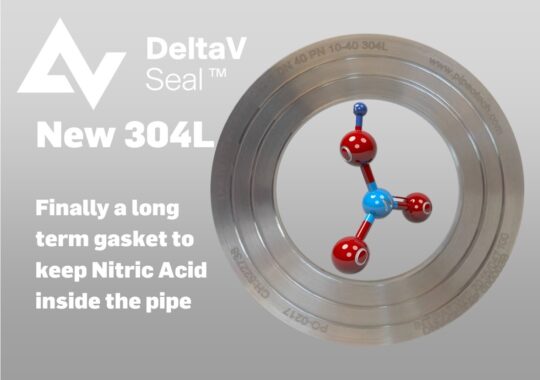
Working with the chemical industries it is clear Nitric Acid is a particularly challenging chemical to keep within bolted flange joints. Current industry practice on bolted flange joints containing…
Frequently Asked Questions
James Knights on News · Mar 17, 2023

The DeltaV-Seal is revolutionising static sealing, one gasket at a time. The gasket provides the tightness and durability of a metal-to-metal seal with the ease of application of a spiral wound,…
Proposed European PFAS ban officially submitted – it’s potential impact on PTFE gaskets.
James Knights on News · Mar 17, 2023
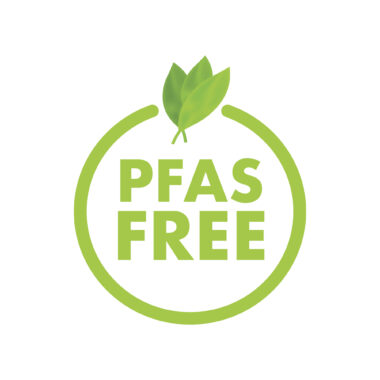
On the 13 January 2023, The Netherlands, Germany, Denmark, Sweden and Norway took the first formal step towards a European ban on polyfluoroalkyl substances (PFAS) by jointly submitting a restriction…
We're growing - and moving to a bigger office space!
James Knights on News · Mar 06, 2023

We are excited to announce that Pipeotech’s Oslo team is moving to a new location within Oslo. The big reason? We are growing in both the number of clients and number of applications where a…
DeltaV-Seal Gaskets for peroxide service featured in Fluid Handling Pro
James Knights on News · Dec 21, 2022

Pipeotech's project with a global manufacturer of peroxide has been featured within Fluid Handling Pro. The article details the design considerations for a gasket utilized in an extremely pure…
Pipeotech Q3 Newsletter
James Knights on News · Oct 20, 2022
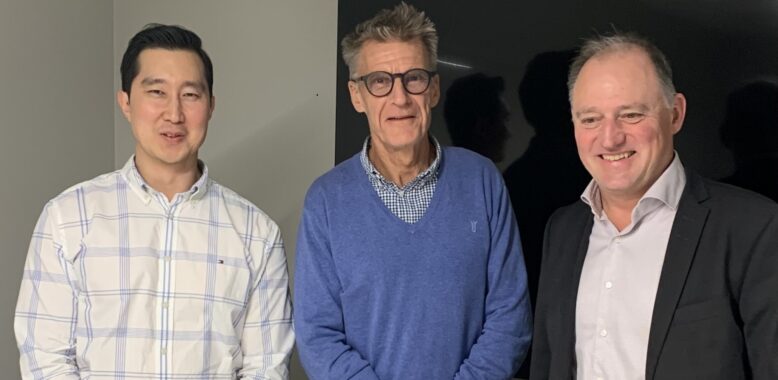
Another quarter is in the books here at Pipeotech. Q3 brought many opportunities for the company. Engineers and executives met with clients across the globe and attended various events to share the…
Pipeotech, featured in Fluid Handing Pro

Jo Shailes on News · Nov 15, 2021
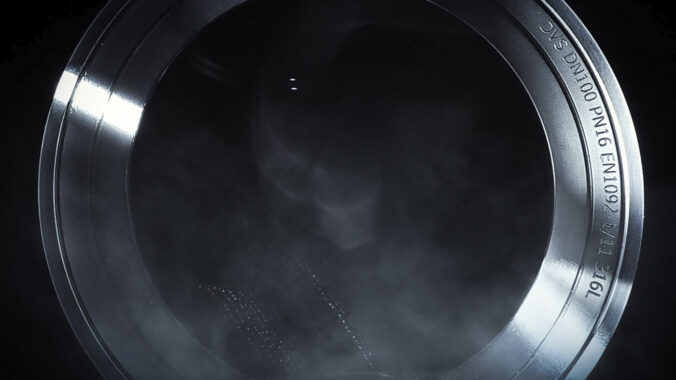
Vibration Analysis Part of the DNV GL Type Approval for the Pipeotech DeltaV-Seal The weakest link in industrial piping systems is the gasket. Conventional semi-metallic gasket technologies are not…
Pipeotech, featured in Sealing Technology & World Pumps

Jo Shailes on News · Oct 27, 2021
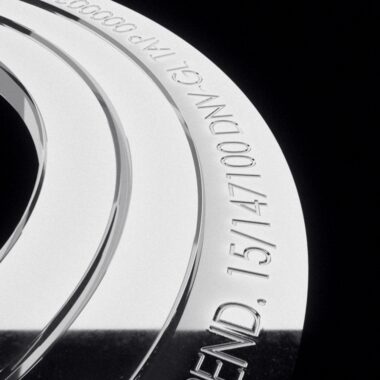
Following extensive leakage testing, carried out under cryogenic conditions in a laboratory programme, Pipeotech has extended coverage all the way down to applications running at a temperature of…
Valve World features DeltaV-Seal™
Geir Otto Amundsen on News · Sep 15, 2021
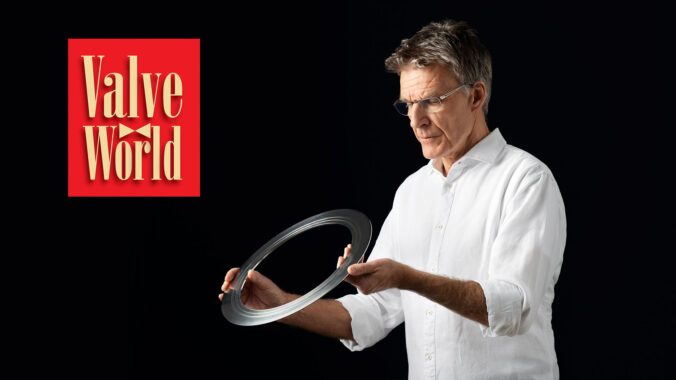
In July 2021, one of the sealing industry's most widely circulated publications, Valve World, featured Pipeotech CTO Jan Oredsson inspecting a DeltaV-Seal gasket on its front cover, hailing Pipeotech…
Andrew Patrick takes over as Pipeotech interim CEO
Geir Otto Amundsen on News · Jun 23, 2021
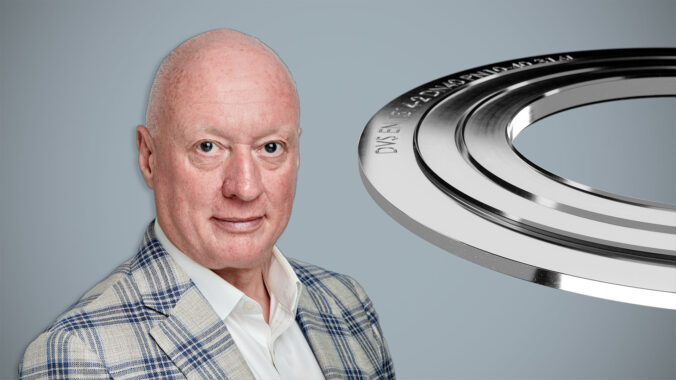
Pipeotech has appointed Andrew Patrick as the company’s interim chief executive following the resignation of outgoing CEO Henrik Sollie. Patrick steps into the interim role from his current position…
Cryogenic milestone for DeltaV-Seal™
Geir Otto Amundsen on News · Mar 31, 2021
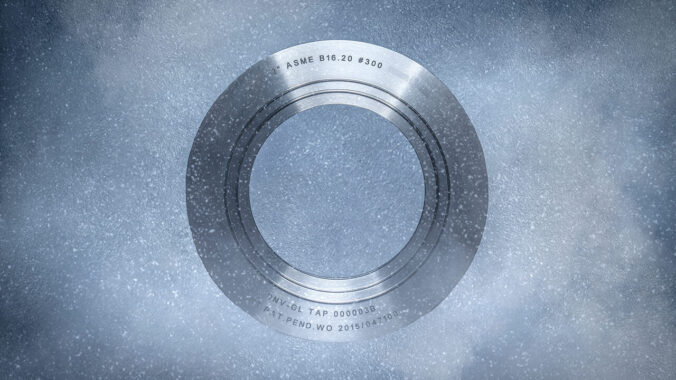
Pipeotech gasket, DeltaV-Seal™ is engineered for long term use, all the way down to applications running at -196°C, based on stellar results of cryogenic leakage tests at a pre-eminent European…
DeltaV-Seal™ - The end to fugitive emissions?
Geir Otto Amundsen on News · Mar 16, 2021
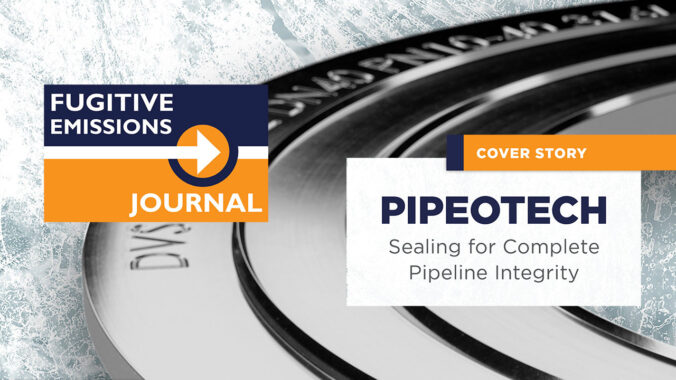
At Pipeotech we believe that the concept of 'acceptable leakage' is unacceptable and that flange-born fugitive emissions are an avoidable threat. As part of our mission to spread this message it was…
Corrosion and integrity specialist Jan Oredsson joins Pipeotech
Geir Otto Amundsen on News · Dec 02, 2020
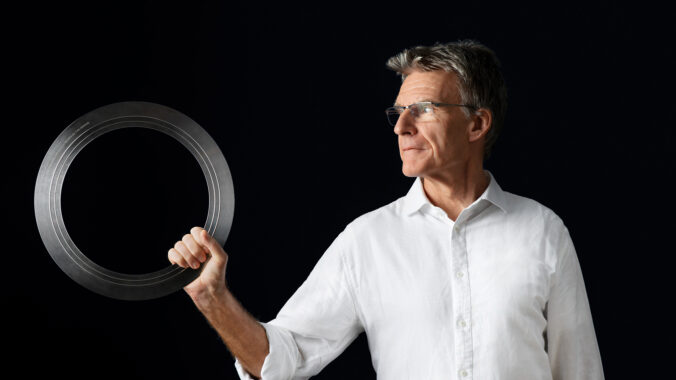
Pipeotech has sealed the deal on an exciting new addition to its team by bringing in internationally recognized pipeline integrity and corrosion expert Jan Oredsson.Oredsson has extensive experience…
Pipeotech recruits Andrew J. Patrick as new Head of Business Development
Geir Otto Amundsen on News · Oct 05, 2020

Pipeotech is looking to “supercharge” its global growth with the recruitment of Andrew Patrick to the new role of Head of Business Development. Patrick, previously EVP Global Sales at Clock Spring…
Pipeotech present at Oslo Innovation Week 2020
Geir Otto Amundsen on News · Oct 02, 2020
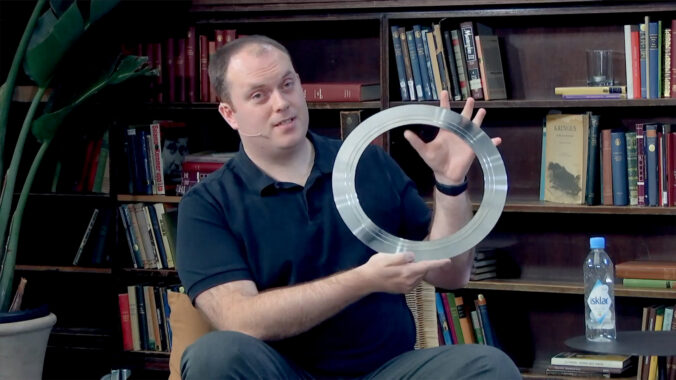
On Tuesday 22nd September 2020, Pipeotech took part in an Oslo Innovation Week live stream event in association with Energy Valley - showcasing our DeltaV-Seal™ technology and telling the world about…
Pipeotech joins the European Sealing Association
Geir Otto Amundsen on News · Jun 28, 2020

Pipeotech is pleased to announce that it has become a member of the European Sealing Association.Established in 1992 as a non-profit making trade association, The European Sealing Association…
To boldly go... Pipeotech joins the Innovation Norway, Explorer
Geir Otto Amundsen on News · Apr 22, 2020
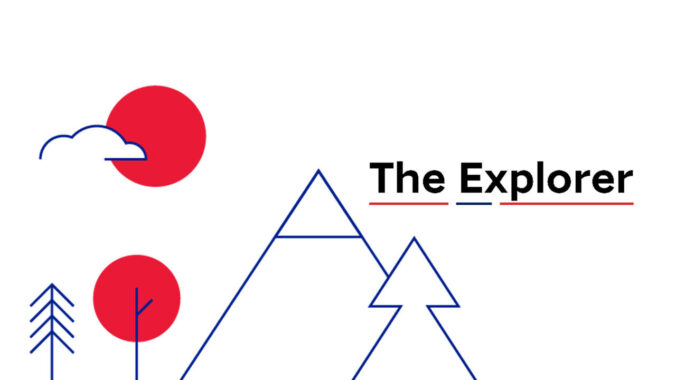
We’re pleased to announce that at the beginning of 2020, Pipeotech joined the ranks of one of Norwegian Industry’s most exclusive clubs, The Explorer. Opened by Norwegian Prime Minister Erna Solberg…
From subsea to life on land - gasket technology follows Darwinism
Geir Otto Amundsen on News · Aug 28, 2019

As featured by Yahoo Finance news via Cision PRNewswireMetal-to-metal sealing technology is a technique that had previously been reserved for subsea oil and gas applications where meeting the most…